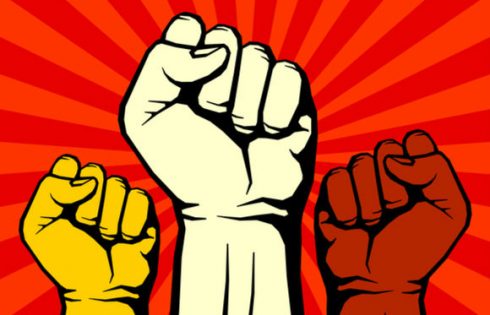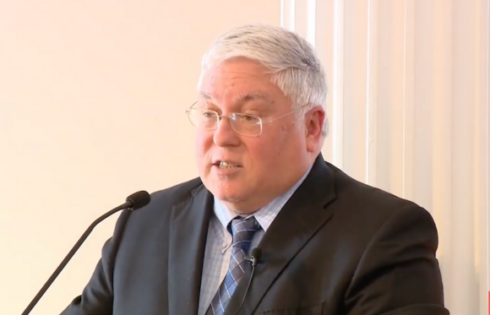According to a CNN poll of registered voters, in Tuesday night’s debate Romney scored big wins on the economy (58-40%), taxes (51-44%), and the deficit (49-36%). In an election year in which the struggling economy is a leading issue of voter concern, those numbers are bad news for Mr. Obama.
The post-debate analysis and spin varied widely. Focus groups assembled by Fox News and MSNBC both declared Mr. Romney the victor. But CNN reported that Obama won the overall debate according to 46 % of likely voters watching, while Romney was the winner according to 39 %.
With the economy’s travails and the Obama administration’s response to the attack in Libya looming as major issues, the two presidential candidates squared off at Hofstra University in Hempstead, Long Island for a highly contentious debate.
Before the debate, analysts and pundits on both sides of the ideological spectrum predicted that Mr. Obama would be more enthusiastic, in contrast to his previous lethargic performance, and that he would nevertheless have to remain calm and polite. What actually took place was a feisty battle that contradicted the long held idea that it was difficult for candidates to go on the offensive in a town hall-style debate.
Mr. Romney and Mr.Obama vigorously attacked each other’s records, future plans, and character. At times they invaded each other’s personal space looking as though at any moment they could start a wrestling match.
Mr. Obama clearly was able to summon the level of passion that he lacked in the previous debate. In his first question to answer he attacked Mr. Romney and never ceased for the remainder of the night.
Yet on question related to the economy, Mr. Romney scored the most blows. In the first question, directed to Mr. Romney, a college student asked how he would help fellow college students secure jobs. Mr. Romney answered saying that he was in favor of increasing Pell Grants and touted his record of achievement in education in Massachusetts as proof that he could faithfully represent college students in a tough economy. He argued that a better economy would naturally be beneficial for college students.
Mr. Obama used his turn to attack Mr. Romney for his support of allowing General Motors to enter bankruptcy, while he largely ignored the question of how he would help college graduates get jobs.
In a segment of the debate that crystallized the debate’s tone and overall substance, both presidential candidates lambasted each other on the contentious issue of Libya. Mr. Obama called the GOP assertion of a cover-up “offensive.” However, the president failed to answer the actual question, and did not say why requests for additional security at the Benghazi consulate were denied in the months leading up to the attack.
Romney missed an opportunity to attack Obama on his failure to provide adequate security in Benghazi, and instead got caught up on the issue of whether Obama had called it a “terrorist” attack or not. After the debate, moderator Candy Crowley said that although the point Mr. Obama made about his statements the day after the attack was, narrowly, correct, Mr. Romney was correct on the larger issue of how long it took the Obama administration to mount a forthright, coherent response.
Staging was awkward at times for both men, as Mr. Obama and Mr. Romney closed in on each other in a battle about coal and energy. The fact that these two men have an uncanny ability to get under each others skins was obvious to viewers. Greta Van Susteren, of Fox News, said in a tweet that the “spat… felt uncomfortable to watch.”
Mr. Obama, often angrily, attempted to eviscerate the Romney plan on growing the economy. He bolstered his case by lamenting Mr. Romney’s lack of specifics on exactly what “loopholes and deductions” he would deal with. However, he did not mention his own lack of specifics. And polls indicate that he failed to convince viewers that, after four years of trying, he has a viable plan to turn the economy around.
Click here to Like The College Fix on Facebook.





Please join the conversation about our stories on Facebook, Twitter, Instagram, Reddit, MeWe, Rumble, Gab, Minds and Gettr.